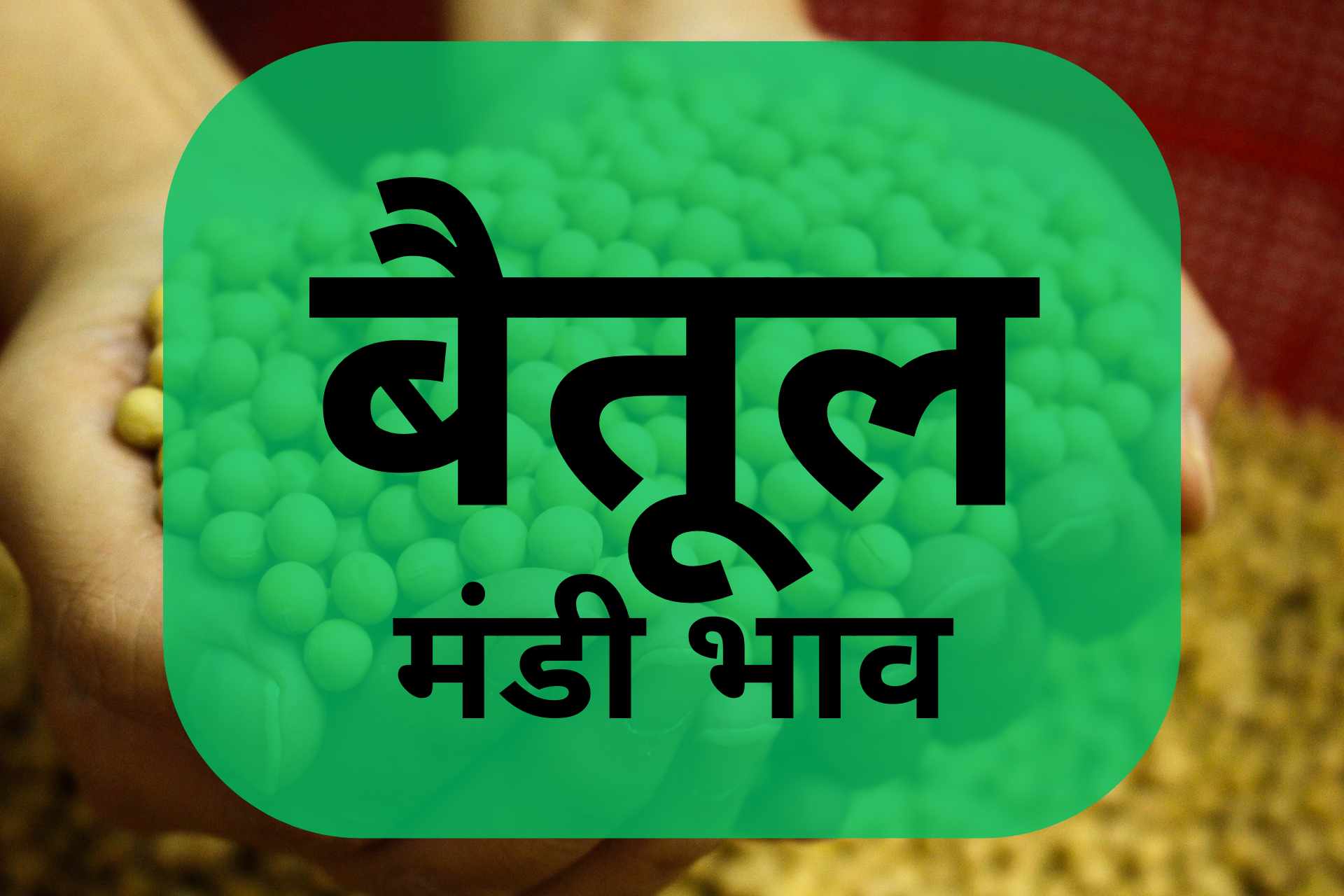
Tue, September 24, 2024
| फसल | कुल आवक (क्विन्टल में) | दर ₹/क्विन्टल | ||
|---|---|---|---|---|
| न्यूनतम | उच्चतम | प्रचलित | ||
| उड़द/उरदा | 1.0500 | 7601.00 | 7601.00 | 7601.00 |
| गुल्ली | 6.1500 | 3851.00 | 3870.00 | 3851.00 |
| गेहूं | 223.8000 | 2670.00 | 2734.00 | 2677.00 |
| चना | 5.1500 | 6676.00 | 6701.00 | 6701.00 |
| मक्का/भुट्टा | 39.1500 | 2211.00 | 2310.00 | 2250.00 |
| मूंग | 9.1000 | 5000.00 | 8000.00 | 6201.00 |
| सरसों | 1.9500 | 5661.00 | 5776.00 | 5776.00 |
| सोयाबीन | 993.4000 | 4100.00 | 4471.00 | 4300.00 |
Last updated at 2024-09-25 09:37:29
Betul Mandi, a key trading hub in Madhya Pradesh, is renowned for its diverse range of agricultural commodities. Farmers and traders rely on Betul Mandi Bhav to make informed decisions about buying and selling various crops. Below is an overview of the major commodities traded in Betul Mandi and why their pricing is essential to the agricultural economy.
Key Commodities in Betul Mandi
Wheat
Wheat is a staple crop in Betul and a key driver of the mandi’s daily activity. Farmers bring in their freshly harvested wheat to get the best prices, and traders actively monitor Wheat Bhav to secure quality stocks at competitive rates.
Soyabean
Soyabean is one of the most crucial crops in Betul Mandi. Known for its high-quality production, the Betul region plays a significant role in soybean pricing across Madhya Pradesh. The daily Betul Mandi Bhav for soybean affects decisions made by farmers and large-scale processors alike.
Maize/Bhutta
Maize, or bhutta, is another significant commodity in Betul Mandi. Used both as a staple food and as livestock feed, maize prices are closely watched by farmers and traders. The pricing trends can have a direct impact on the profitability of agricultural activities in the region.
Gram
Gram, or chana, is a popular pulse crop that sees active trading in Betul Mandi. The Betul Mandi Bhav for gram is crucial for farmers looking to capitalize on favorable market conditions. As a protein-rich crop, gram is in high demand both locally and nationally.
Gulli
Gulli, a form of raw or broken grain, is often traded in Betul Mandi for use in animal feed or other processing needs. The demand for gulli fluctuates based on local livestock and poultry requirements, making it an important commodity to watch.
Mung
Mung, or green gram, is a valuable pulse crop in Betul Mandi. Known for its health benefits and versatility in cooking, mung is a staple in Indian households. The pricing of mung in Betul Mandi often reflects broader market trends across the pulse industry.
Mustard
Mustard seed is an essential oilseed crop in Betul. The Betul Mandi Bhav for mustard directly influences the oil production industry, as mustard oil remains a popular cooking medium across India. Traders watch the prices closely to plan their stock purchases.
Urad/Urda
Urad, or black gram, is another important pulse crop traded in Betul Mandi. The urad prices affect both the local and national market, as it is widely used in Indian cuisine, particularly for dishes like dal makhani and idli batter.
Jaggery
Jaggery, a traditional sweetener made from sugarcane, is actively traded in Betul Mandi. With its demand driven by both local consumers and sweet manufacturers, jaggery prices can vary based on seasonal production and market demand.
Baheda
Baheda, a medicinal fruit, is one of the lesser-known but valuable commodities in Betul Mandi. Used in traditional medicine, baheda prices are influenced by local harvest yields and demand from herbal product manufacturers.
Tamarind
Tamarind is an essential ingredient in Indian cuisine, and its trading in Betul Mandi caters to both domestic and regional markets. Tamarind prices depend on the quality of the produce and demand from food processors.
Mahua Flower
Mahua flowers are used for making traditional alcoholic beverages and medicinal products. The Betul Mandi Bhav for mahua flowers is significant for traders dealing in organic and natural products.
Rice
Rice is a major food crop in India, and Betul Mandi sees substantial trade in various rice varieties. The price of rice in Betul Mandi is important for both local consumption and export activities.
Tuar/Arhar
Tuar, also known as arhar or pigeon pea, is a vital pulse crop in Betul Mandi. The arhar dal produced from tuar is a staple in Indian diets, making the daily Bhav crucial for traders and consumers alike.
Potato
Potatoes are a staple vegetable, and Betul Mandi witnesses significant trade in this crop. The price of potatoes in Betul can be influenced by both local harvests and broader market conditions.
Tulsi
Tulsi, also known as holy basil, is valued for its medicinal properties. Betul Mandi sees active trading in tulsi leaves, particularly from herbal and ayurvedic product manufacturers who rely on fresh supplies.
Vine
Vine crops, which include a variety of climbing plants like gourds and beans, are also traded in Betul Mandi. These crops are often seasonal, and their prices vary depending on demand and yield.
Lentil or Masoori
Lentils, or masoori, are another important pulse crop in Betul Mandi. Lentils are widely used in Indian households, and the Betul Mandi Bhav for lentils can influence the broader market trends.
Peas
Peas are a versatile vegetable, used in both fresh and processed forms. The trading of peas in Betul Mandi caters to local and regional markets, and prices can fluctuate based on seasonal availability and demand.
Staying updated with the Betul Mandi Bhav for these key commodities is essential for anyone involved in agricultural trade. Whether you are a farmer looking to sell your produce or a trader planning to purchase in bulk, keeping an eye on the daily prices in Betul Mandi can help you make informed and profitable decisions.